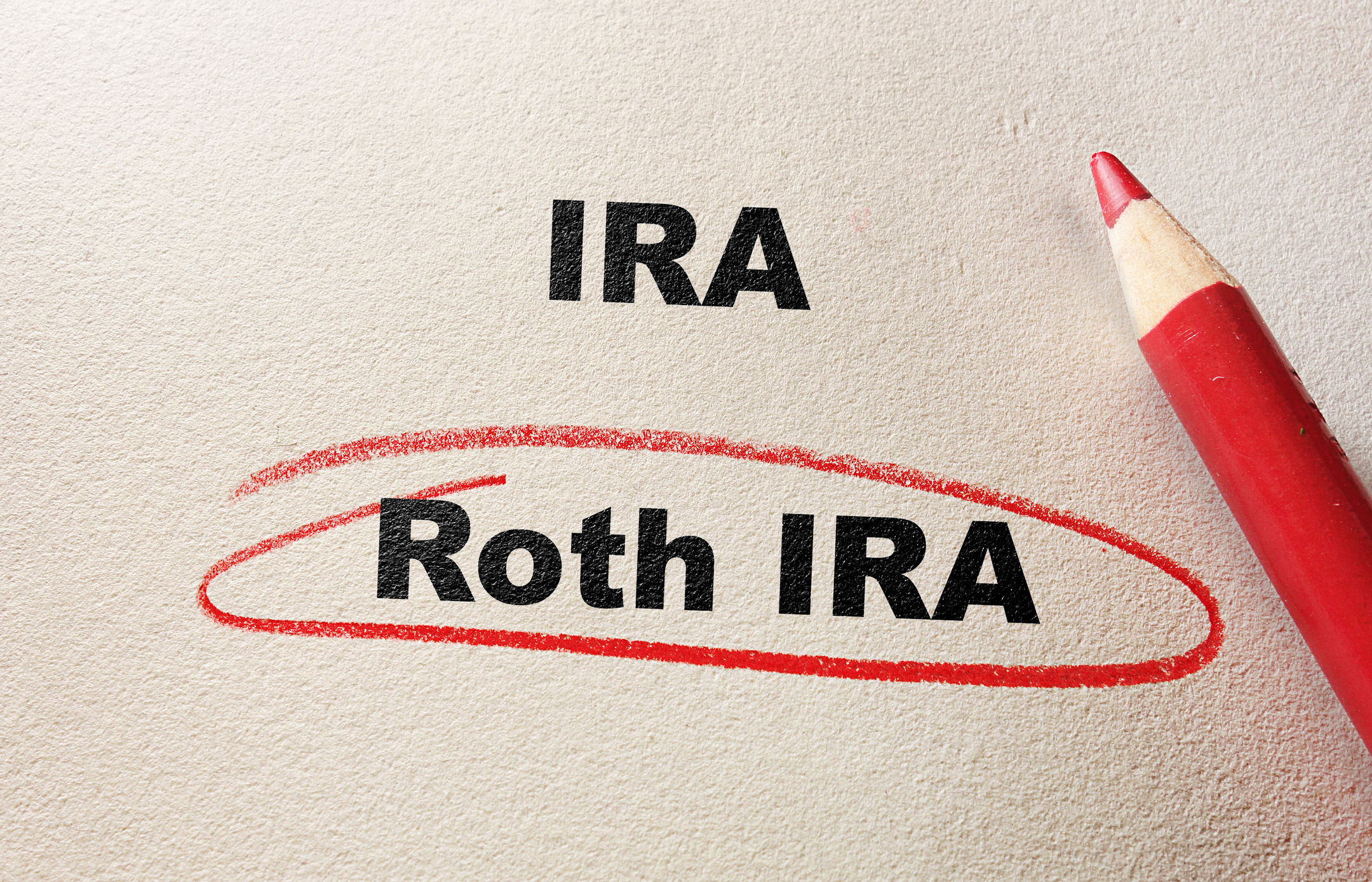IRA Rollover Rules: What You Need to Know
Three important IRA rollover rules to remember. As always, getting taxes wrong can be costly.


Profit and prosper with the best of Kiplinger's advice on investing, taxes, retirement, personal finance and much more. Delivered daily. Enter your email in the box and click Sign Me Up.
You are now subscribed
Your newsletter sign-up was successful
Want to add more newsletters?

Delivered daily
Kiplinger Today
Profit and prosper with the best of Kiplinger's advice on investing, taxes, retirement, personal finance and much more delivered daily. Smart money moves start here.

Sent five days a week
Kiplinger A Step Ahead
Get practical help to make better financial decisions in your everyday life, from spending to savings on top deals.

Delivered daily
Kiplinger Closing Bell
Get today's biggest financial and investing headlines delivered to your inbox every day the U.S. stock market is open.

Sent twice a week
Kiplinger Adviser Intel
Financial pros across the country share best practices and fresh tactics to preserve and grow your wealth.

Delivered weekly
Kiplinger Tax Tips
Trim your federal and state tax bills with practical tax-planning and tax-cutting strategies.

Sent twice a week
Kiplinger Retirement Tips
Your twice-a-week guide to planning and enjoying a financially secure and richly rewarding retirement

Sent bimonthly.
Kiplinger Adviser Angle
Insights for advisers, wealth managers and other financial professionals.

Sent twice a week
Kiplinger Investing Weekly
Your twice-a-week roundup of promising stocks, funds, companies and industries you should consider, ones you should avoid, and why.

Sent weekly for six weeks
Kiplinger Invest for Retirement
Your step-by-step six-part series on how to invest for retirement, from devising a successful strategy to exactly which investments to choose.
Getting the right tax advice and tips is vital in the complex tax world we live in. The Kiplinger Tax Letter helps you stay right on the money with the latest news and forecasts, with insight from our highly experienced team (Get a free issue of The Kiplinger Tax Letter or subscribe). You can only get the full array of advice by subscribing to the Tax Letter, but we will regularly feature snippets from it online, and here is one of those samples…
Let’s take a look at three important rules if you're contemplating an IRA rollover:
1. The distribution must be recontributed within 60 days or it is taxed. It's also hit with a 10% early distribution penalty for people under age 59 1/2. IRS offers relief if you deposit the withdrawn funds to an IRA after the 60-day period. You can self-certify that you qualify for a waiver of the 60-day rule in certain cases. The late rollover must be for one of 12 reasons and completed within 30 days after the specific reason for failing to do it timely in the first place ceases.
From just $107.88 $24.99 for Kiplinger Personal Finance
Become a smarter, better informed investor. Subscribe from just $107.88 $24.99, plus get up to 4 Special Issues

Sign up for Kiplinger’s Free Newsletters
Profit and prosper with the best of expert advice on investing, taxes, retirement, personal finance and more - straight to your e-mail.
Profit and prosper with the best of expert advice - straight to your e-mail.
2. You must roll over the same property that you received from the IRA. For example, if you took a cash distribution, then cash must be deposited in a rollover. If the payout was 100 shares of Apple stock, those same shares must be put back.
3. Don’t violate the one-rollover-every-12-months rule. This rule applies on an aggregate basis to all your IRAs, not on an IRA-by-IRA basis. IRA owners with multiple accounts can make unlimited trustee-to-trustee transfers between IRAs in a 12-month period because such direct transfers aren’t rollovers. Ditto if the IRA owner is given a check payable to the new IRA for his or her benefit.
IRA rollover rules: A case study
Here is a case in which an IRA owner violated all three rollover rules. He had a custodial IRA governed by a custodial agreement. His IRA held an interest in a hedge fund, among other assets. Pursuant to the agreement, the IRA owner was required to annually provide to the financial institution that held his IRA the fair market value of the hedge fund interest.
He didn’t do this in 2015, so the bank, per the agreement, had the IRA distribute the hedge fund interest to him. The bank issued him a 1099-R reporting the payout. Over a year later, he liquidated his hedge fund interest and recontributed the proceeds to another IRA with a different custodian in three transfers. He reported this series of events on his 2015 Form 1040 as a nontaxable rollover. The Tax Court disagreed, ruling the distribution was taxable due to these violations:
- The same property wasn’t rolled over. The distribution to the IRA owner was that of a hedge fund interest, and he contributed cash to the second IRA.
- The attempted rollover was late. He received the hedge fund interest in Nov. 2015 and contributed the cash to the second IRA in 2017. This is past the 60-day deadline.
- There was more than one rollover in a 12-month period. The transaction involved three separate cash contributions into the second IRA over six months.
(Est. of Caan, 161 TC No. 6).
This first appeared in The Kiplinger Tax Letter. It helps you navigate the complex world of tax by keeping you up-to-date on new and pending changes in tax laws, providing tips to lower your business and personal taxes, and forecasting what the White House and Congress might do with taxes. Get a free issue of The Kiplinger Tax Letter or subscribe.
Profit and prosper with the best of Kiplinger's advice on investing, taxes, retirement, personal finance and much more. Delivered daily. Enter your email in the box and click Sign Me Up.

Joy is an experienced CPA and tax attorney with an L.L.M. in Taxation from New York University School of Law. After many years working for big law and accounting firms, Joy saw the light and now puts her education, legal experience and in-depth knowledge of federal tax law to use writing for Kiplinger. She writes and edits The Kiplinger Tax Letter and contributes federal tax and retirement stories to kiplinger.com and Kiplinger’s Retirement Report. Her articles have been picked up by the Washington Post and other media outlets. Joy has also appeared as a tax expert in newspapers, on television and on radio discussing federal tax developments.
-
 The Cost of Leaving Your Money in a Low-Rate Account
The Cost of Leaving Your Money in a Low-Rate AccountWhy parking your cash in low-yield accounts could be costing you, and smarter alternatives that preserve liquidity while boosting returns.
-
 I want to sell our beach house to retire now, but my wife wants to keep it.
I want to sell our beach house to retire now, but my wife wants to keep it.I want to sell the $610K vacation home and retire now, but my wife envisions a beach retirement in 8 years. We asked financial advisers to weigh in.
-
 How to Add a Pet Trust to Your Estate Plan
How to Add a Pet Trust to Your Estate PlanAdding a pet trust to your estate plan can ensure your pets are properly looked after when you're no longer able to care for them. This is how to go about it.
-
 Should You Do A Roth IRA Conversion? Nine Things to Consider
Should You Do A Roth IRA Conversion? Nine Things to ConsiderThe Tax Letter Thinking of converting a traditional IRA to a Roth IRA? The Kiplinger Tax Letter Editor highlights nine factors you should consider before making a move.
-
 What DOGE is Doing Now
What DOGE is Doing NowThe Kiplinger Letter As Musk's DOGE pursues its ambitious agenda, uncertainty and legal challenges are mounting — causing frustration for Trump.
-
 Universal Savings Accounts Are Like Roth IRAs, But With a Twist
Universal Savings Accounts Are Like Roth IRAs, But With a TwistThe Tax Letter Republican lawmakers and conservative think tanks are proposing a new type of tax-advantaged savings account. Think Roth IRAs, but not just for retirement.
-
 Aging in Place Will Be Big Business for Home Builders
Aging in Place Will Be Big Business for Home BuildersThe Kiplinger Letter Many people will be looking to make their homes aging-friendly in the years to come.
-
 Five Ways to Fund Medicare Part A
Five Ways to Fund Medicare Part AThe Tax Letter Higher taxes can help stave off the projected 2036 insolvency of Medicare's Hospital Insurance trust fund.
-
 QCDs Are a Tax-Smart Way for Retirees To Donate to Charity
QCDs Are a Tax-Smart Way for Retirees To Donate to CharityThe Tax Letter With QCDs, retirees can save on taxes by making donations from their IRAs directly to charity. Here's what you need to know about qualified charitable distributions.
-
 Tax Tips for Transferring Excess 529 Plan Funds to Roth IRAs: The Tax Letter
Tax Tips for Transferring Excess 529 Plan Funds to Roth IRAs: The Tax LetterThe Tax Letter 529 plans can help blunt the cost of paying for college. But if you want to use leftover funds there are some tax tips to bear in mind.
-
 How to Report QCDs on Your Tax Return: The Tax Letter
How to Report QCDs on Your Tax Return: The Tax LetterThe Tax Letter Qualified charitable distributions, otherwise known as QCDs, can be tricky when it comes to tax reporting. We've got some pointers to help with filing.